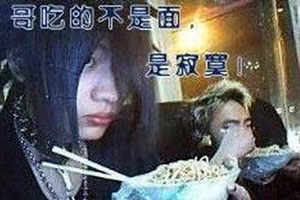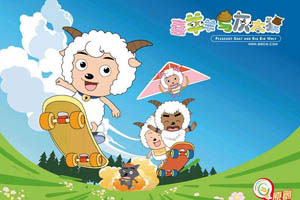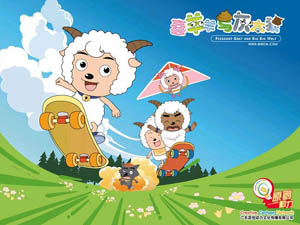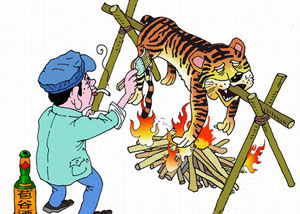2009 top ten news
China's top 10 Internet buzzwords of 2009
By Michelle Du (chinadaily.com.cn)
Updated: 2010-01-07 08:30
 |
Large Medium Small |
Editor's Note: Every year has its crop of buzzwords. You would be an outsider in China if you don't know them.
They are not just popular words and phrases, but cultural memes with rich contexts and implied attitudes. They testify to linguistic expressiveness of the grassroots and the vibrancy of the Chinese language in the hands of ordinary citizens. Some of them may ultimately find their way into the mainstream, but the ability to use them while they are still hot is tantamount to staking your position on the bandwagon.
Here are the ten most popular buzzwords online selected by China Daily web editors. [The Top 10 Everything of 2009]
1. Money's not a big deal. (or Money's not a problem. Money's nothing.)(不差钱)
|
|
The year 2009 is not about money? Many might not agree. But sometimes people say it, and wish it were true. A comedy skit on CCTV Spring Festival Gala spawned this famous line about the outwardly nonchalant attitude towards money. People embraced it to express generosity, friendliness or to justify their spendthrift way of life.
Related readings: Stand up, local hero
Stand up, local hero
2. What I'm eating is not noodles, but solitude.(哥吃的不是面,是寂寞)
Other variations include: What I'm smoking is not a cigarette, but solitude. The person I love is not you, but solitude.
|
 [Photo/] |
Solitude became a hot word on the Internet during 2009. A post in a forum with a photograph featuring a man eating noodles was accompanied by the caption: "What I'm eating is not noodles, but solitude."
Later, web users imitated the sentence structure to spin off other phrases with the same key word.
Solitude is also the punchline for the group of "Zhai" people (who always stay at home in their spare time) and for those who use the Internet every day.
3. Don't be infatuated with me. I'm only a legend. (不要迷恋哥,哥只是一个传说)
|
 [Photo/] |
An online post with a man saying the above sentence became a runaway hit. Unlike the one with "solitude", this one reflects more narcissism. It might be a slogan promoting self-esteem, or you might just use it as self-mockery.
Both this and the last phrase are uttered by men because the person addresses himself as "your brother". This form of avoiding the first person can be either endearing or pompous. Women are advised to change it to "your sister" for customizing.
4. Jia Junpeng, mom wants you back home for dinner.(贾君鹏,你妈妈喊你回家吃饭)
 [Photo/Hudong.com] |
This time, a friendly spirit wins on the Internet. Jia Junpeng, a virtual character first appearing in a post in a forum for the online game World of Warcraft, became famous even though nobody knew anything about him. "Mom wants you back home for dinner" can be used to greet a childhood friend who had become lost, especially in the virtual world. Are you a Jia Junpeng, and did you miss dinner at home today?
 The world of bore-craft
The world of bore-craft
5. Tableware is to the table what tragedy is to life.(人生就像茶几,上面摆满了杯具)
 [Photo/Baidu.com] |
Chinese Internet users banter about life using humorous metaphors. They compare life to the table, and liken tragedies that occur to tableware on the table. The newly coined Chinese phrase "beiju" (杯具) is a homonym of the word "tragedy" (悲剧). When pressures mount in daily life, people use jokes to laugh off setbacks at workplace or in romantic relationships. The popular saying can be attributed to Chinese writer Eileen Chang, who described life as a beautiful gown covered with lice.
6. I'll pay the debt of gratitude by selling myself. (人情债,我肉偿了)
|
|
It's a line used by the heroine Guo Haizao in the popular TV drama "Dwelling Narrowness," which was later removed from BTV due to its controversial content and provocative lines. The character Guo Haizao is the younger of two sisters who pursue their dreams in the city after graduating from a university. In order to earn a place of her own for her family, especially with property prices surging all the time, the elder Guo used her younger sister as collateral. The younger Guo became a mistress of a middle-aged official who has the power and money to help them realize their dream. In a sarcastic but tragic way, the heroin speaks of the difficulties, internal conflicts and pain in all relationships. As the year of 2009 drew to an end, it seemed there would be no end to the overheated property market. The line and the drama itself reminded audiences about the tragedy of life.
Related readings: Price pressure on the home front
Price pressure on the home front
7. Lazy the Sheep is what we want to be. Big Big Wolf is the perfect husband.(做人要做懒羊羊,嫁人就嫁灰太狼)
|
|
The TV series "Pleasant Goat and Big Big Wolf" airs on 50 channels nationwide. The animated show was a success in the television market and has also led to new sayings in the youth market. The show features a herd of goats and several wolves living on "Qingqing Field" and their battle of wits. The character called Lazy the Sheep became a role model for many adult audiences. He's smart and efficient at working and learning, so he has more time to sleep than the others. In many instances, he saved the goats from being caught and eaten by the wolves. But actually, the main villain, Big Big Wolf, never get the chance to eat any one of the goats. He demonstrated his love for his wife, which won the audience's affection.
Related readings: Original pirate material
Original pirate material
8. Believe in Bro Chun, you'll live a long life; believe in Big Zeng, you'll pass every exam.(信春哥,得永生;信曾哥,不挂科)
|
 Internet users twisted a photo of Li Yuchun for amusement. [Photo/] |
Li Yuchun and Zeng Yike are two famous "Happy Girl" singers in a talent show of Hunan Satellite TV. Bro Chun and Big Zeng are nicknames for the girls who look and act like boys. Zeng Yike became famous for her "sheep voice" and her self-composed songs in the talent contest. Her resemblance to ex-happy girl top prize winner Li Yuchun became the subject of spoofs on the Internet. Fans of the two used the saying to promote their popularity, while those who didn't like them used the saying to make fun of their tomboy looks. Love them or hate them, you cannot just avoid them.
Related readings: A less than happy feeling
A less than happy feeling
9. When a verb acts passive aggressive (被就业,被加薪,被自杀…)
|
 Renowned CCTV host and reporter Bai Yansong was said to have committed suicide in some online forums in October. He appeared on a program to explain the "bei committing suicide" incident. [Photo/Msn.ynet.com] |
When an ordinarily active verb is deliberately twisted into passive form, it often implies the helplessness of the person in controlling his own fate. So, the next time you hear a Chinese use the passive word "bei" (被) ostensibly incorrectly, look for the implication rather than the grammar book.
Related readings: Don't worry, bei happy
Don't worry, bei happy
10. This cannot be told in details.(这事儿不能说太细)
|
 [Photo/Club.pchome.net] |
This saying repeats the excuse used to reject inquiries on issues of public concern. Asked by a reporter on a TV program about the amount of loans the Tianjin municipality needs to pay back every year on the construction of roads, an official from the city's department of roads replied, "This cannot be told in details." Now the statement is synonymous with official evasion of public scrutiny.






















